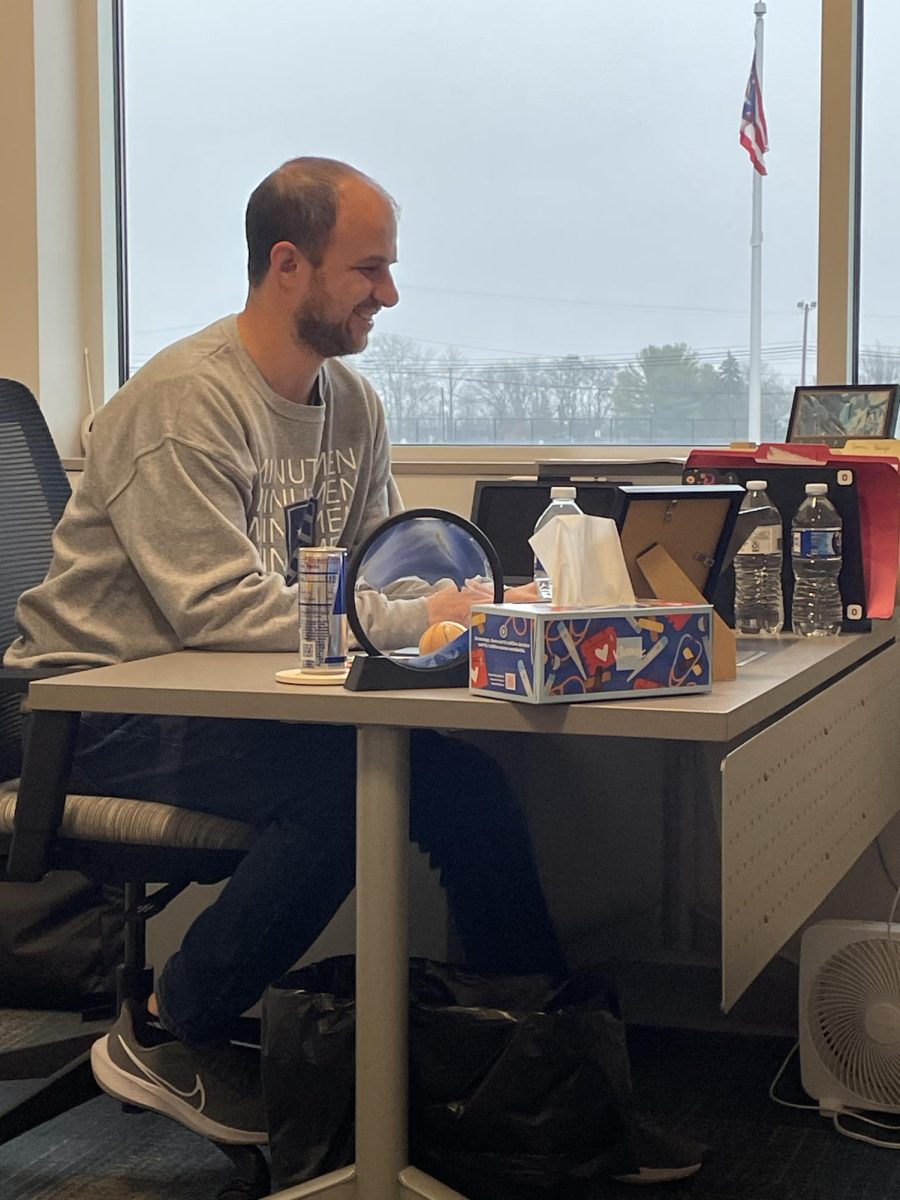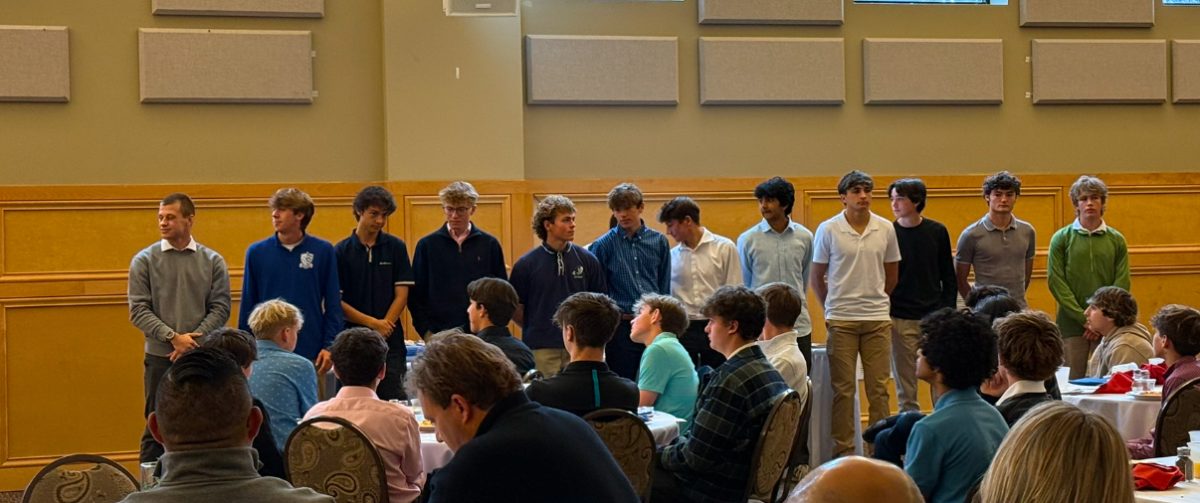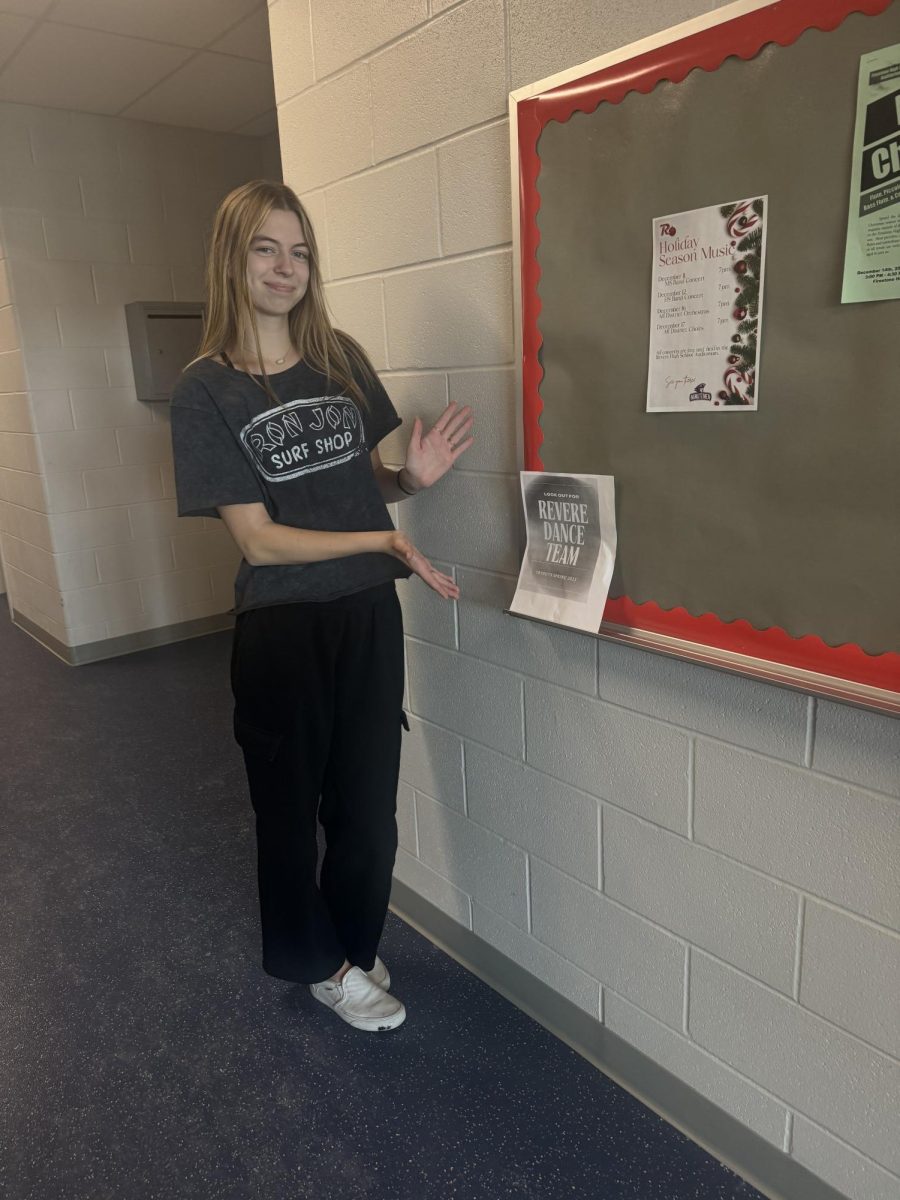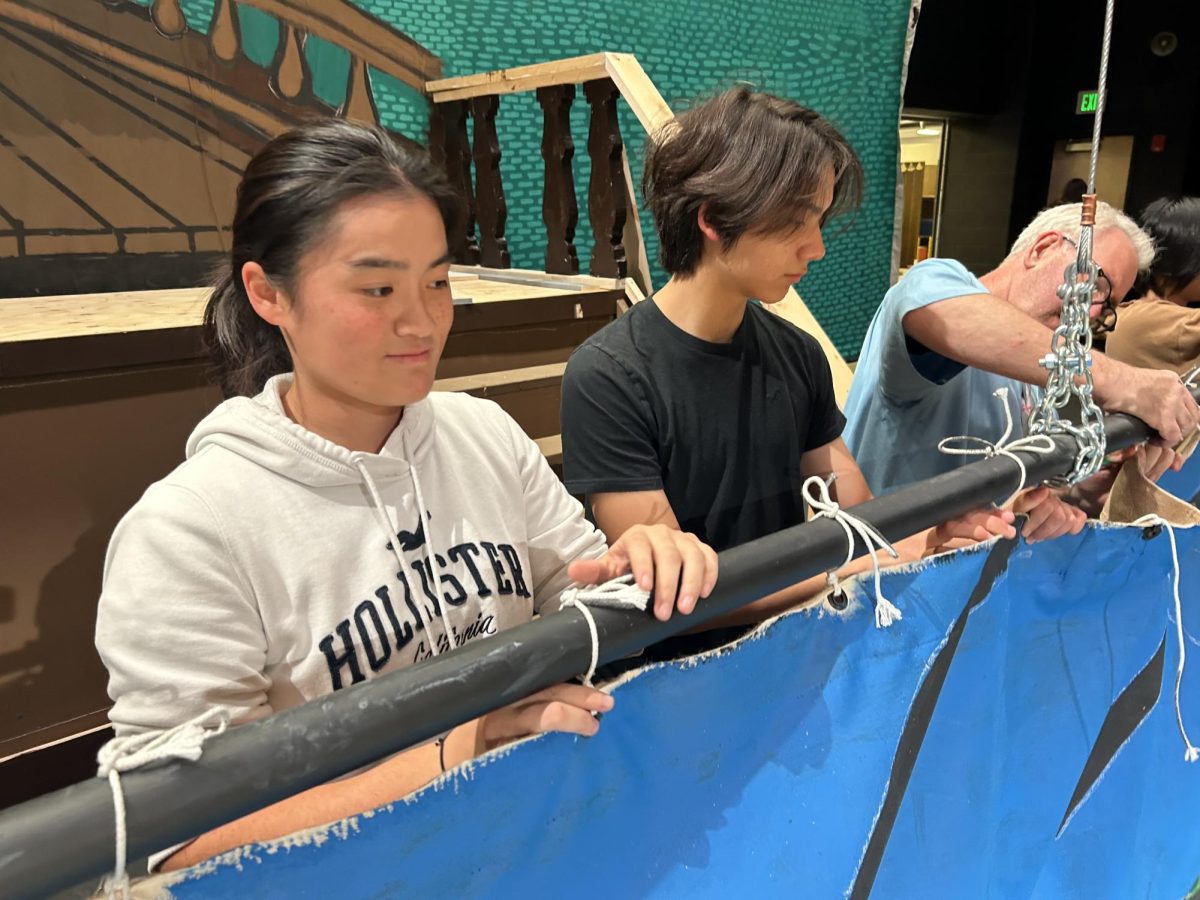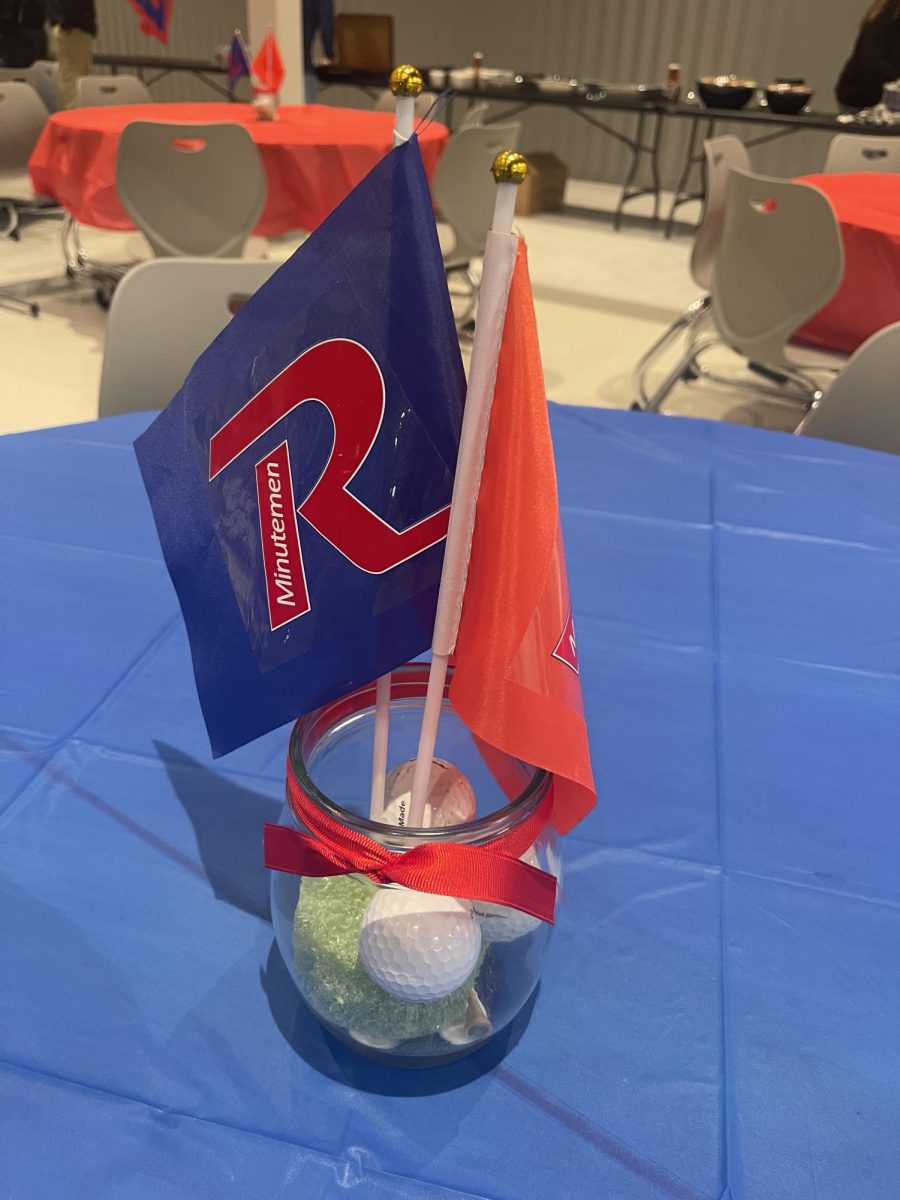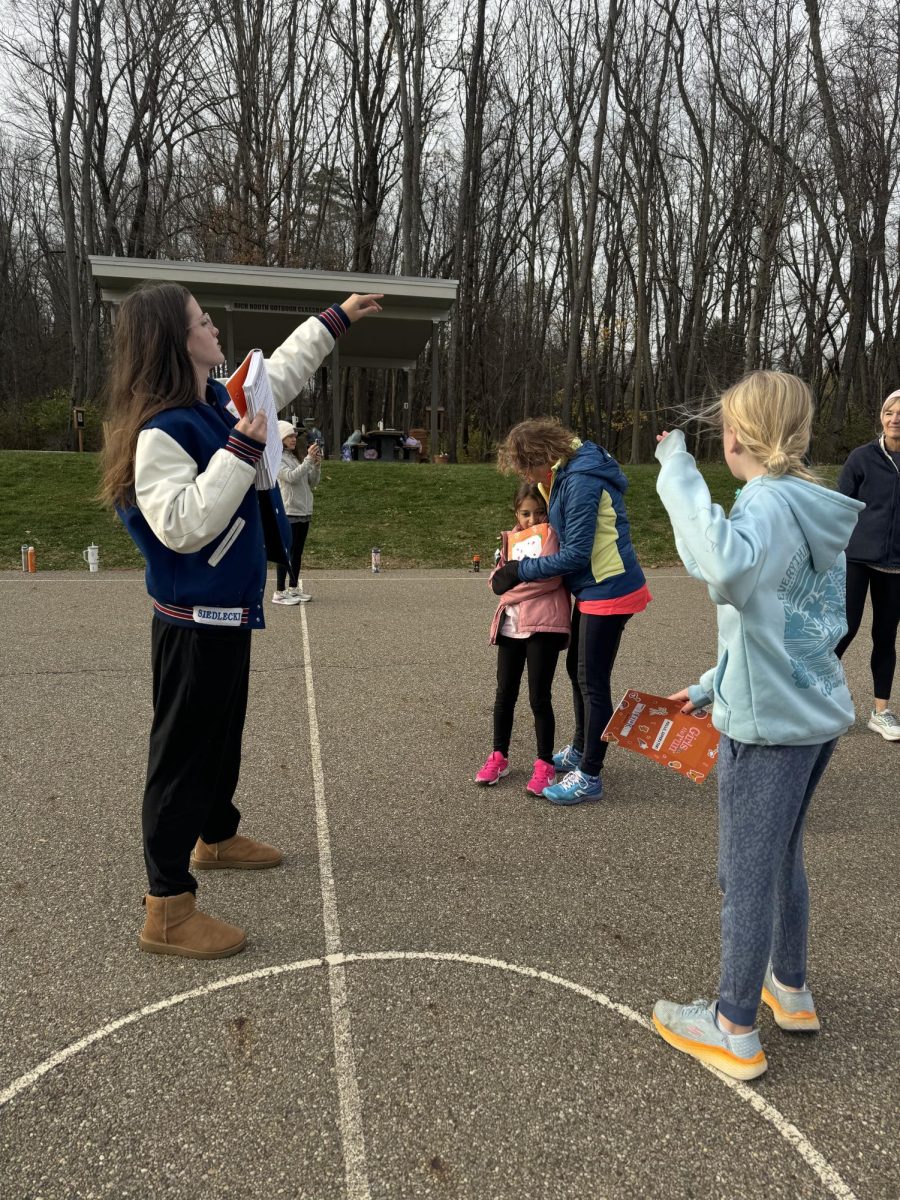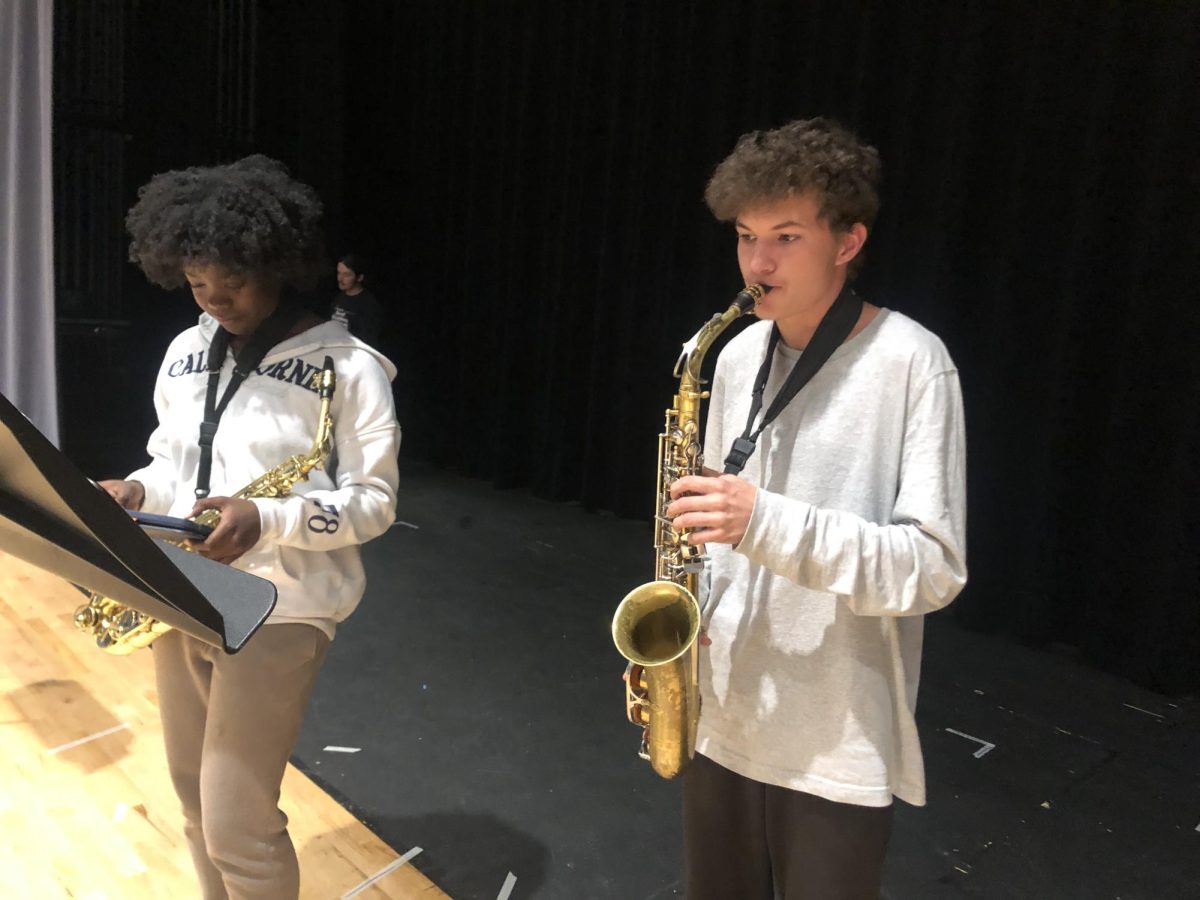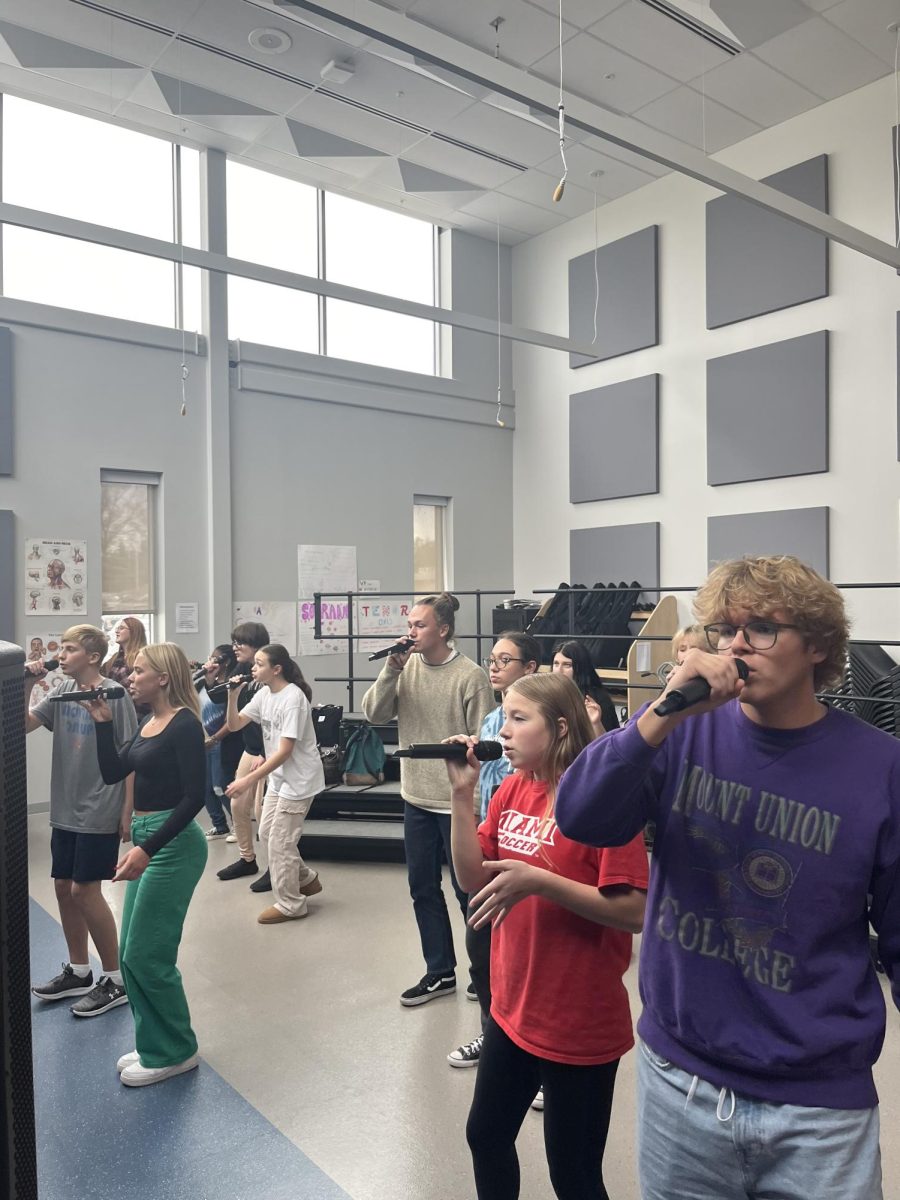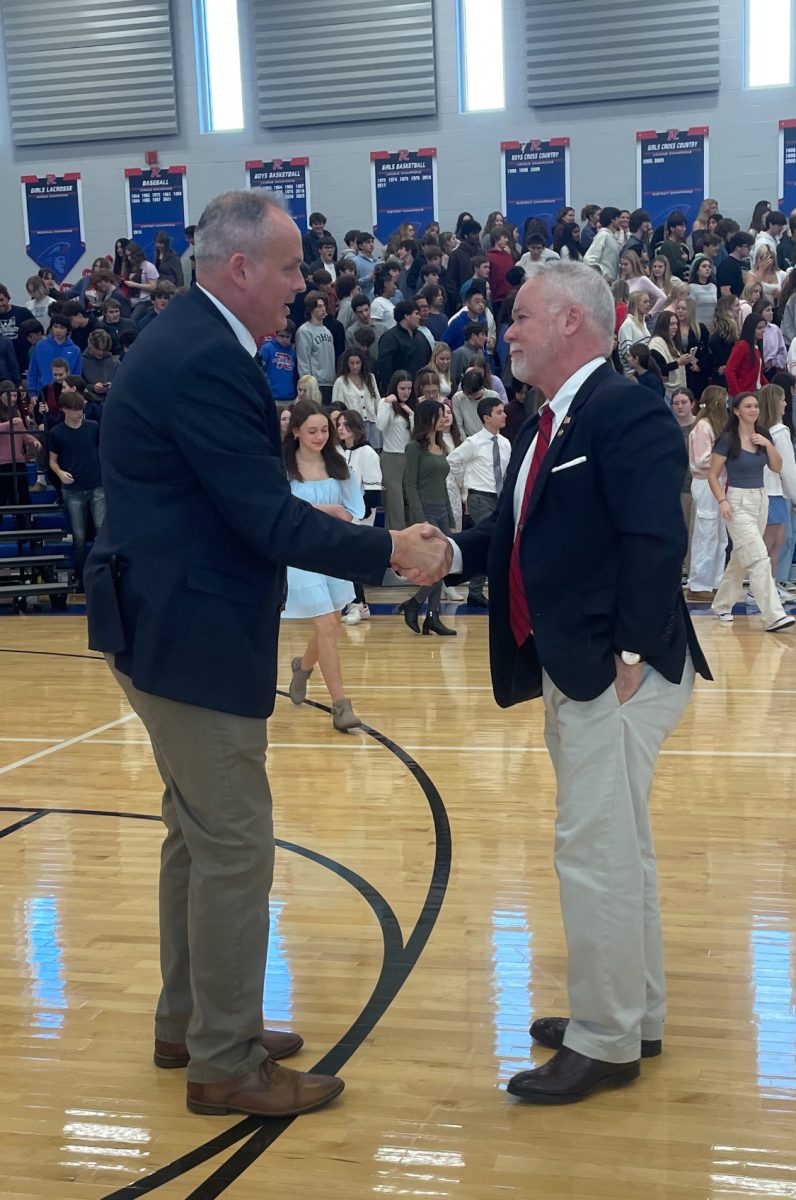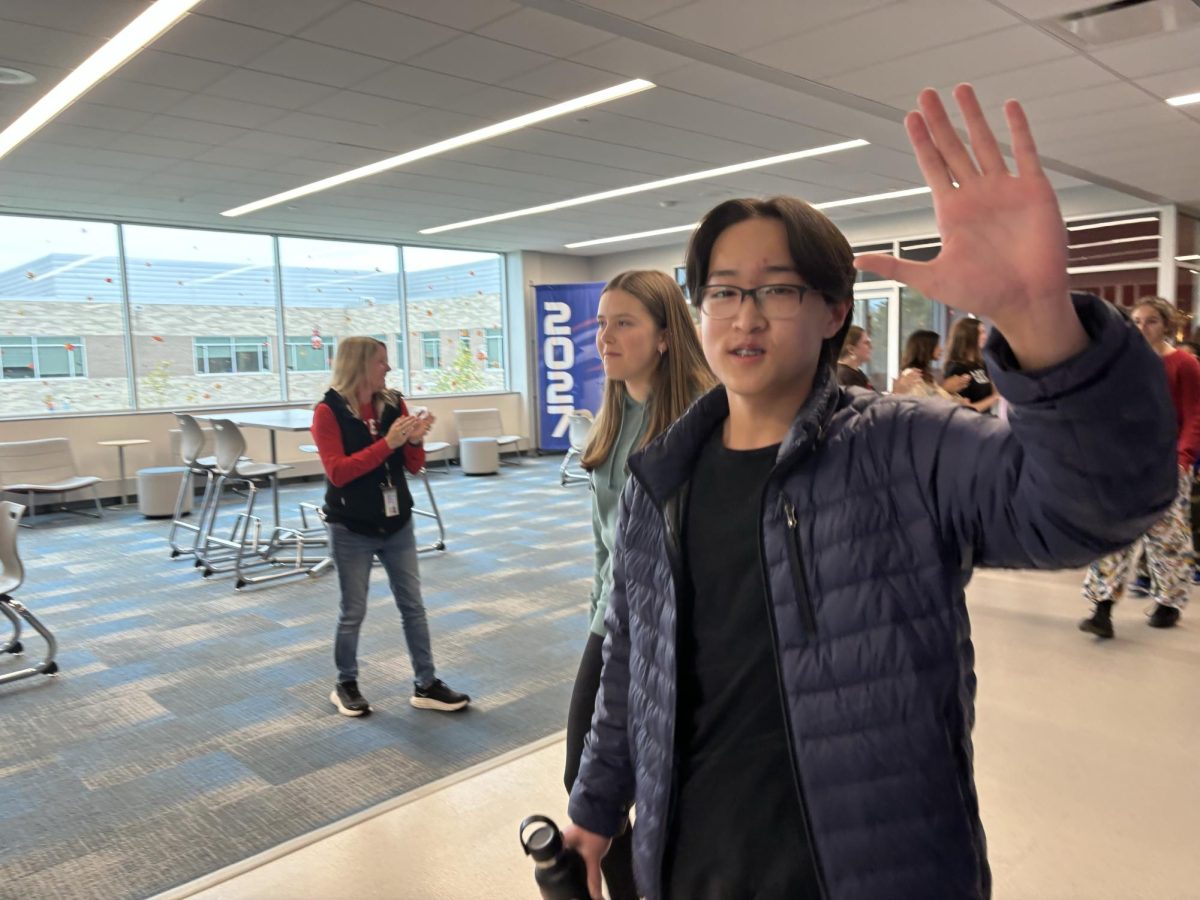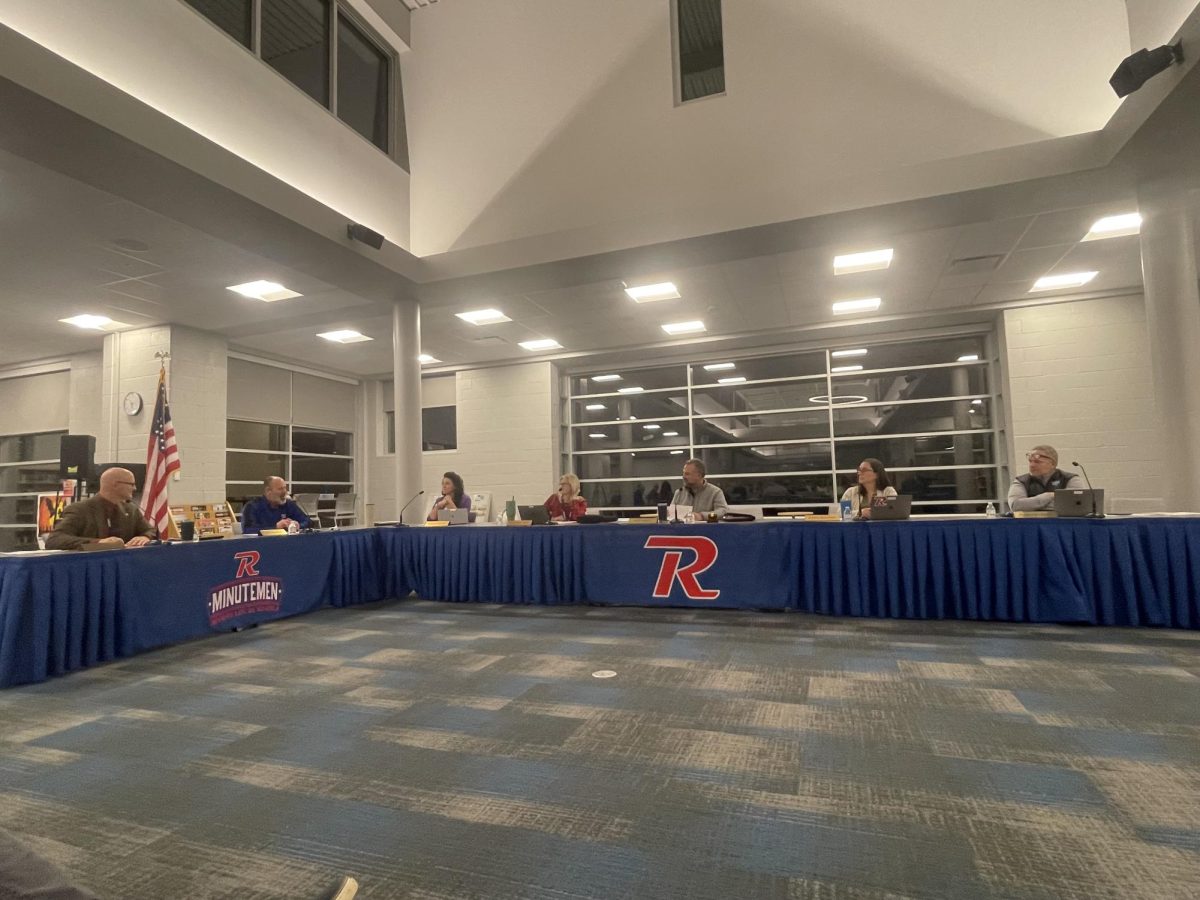Students sit down in padded seats with their heads resting against propped up fists. As one gets called in, aids deliver passes, and eventually more students trickle in.
No other room in the school has the same constant movement. Some walk in to grab a piece of candy, others to discuss their future. The positive messages on the walls and comfortable design of the individual offices do their best to lend strength and encouragement during a stressful time.
Counselors roam from conversation to meeting to a quick moment of filling out forms and back to another meeting. A five minute discussion with one student may turn into ten as someone else may need their attention for a quick concern.
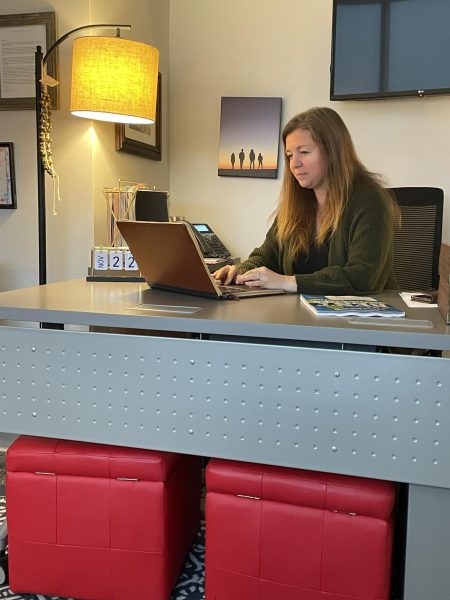
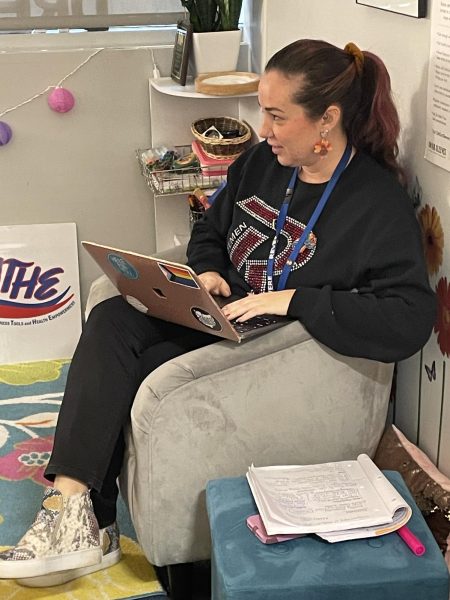
Each year, the counselors pour time and energy into the college application process. Working outside of school hours, they make sure every student has the necessary paperwork and information to attend college. They help guide students through the stressful fall while managing all their other duties. Revere High School’s three counselors involved in the college application process—Nicholas DePompei, Emily Rion and Elizabeth Long—cover students based on their last name. Each year, they oversee a different number of students.
“I usually have anywhere between 65 to 90 seniors, depending on the size of the class,” Long said.
DePompei estimates around 85-90% of these seniors plan to attend college. Counselors get an exact number when they do senior checks, a meeting to discuss post high school plans and begin to get the college application process rolling.
“We get our senior checks done in August. . . . October’s a big month to get as much college stuff out for students as possible,” DePompei said.
This is because November 1 is an important deadline for many students looking to apply early to college. Students who apply early action or early decision often have greater chances at admittance or financial aid packages. Early decision is usually binding, meaning students must attend if they are admitted. While not all early deadlines are on November 1, many are, and most others occur within a week or two of that date. During senior checks, counselors review deadline information to map out not only students’ workload, but their own.
“What we do is talk to the student about ‘where’s your GPA? Where is your test score? What kind of school are you looking at? Do we think we need to give [colleges] more?’ . . . We meet with every student to find out what type of schools they’re trying to apply to. And then we develop a plan of what is necessary for them,” DePompei said.
A lot of work goes into preparing their students for the process as well as sending off required materials. The guidance office’s administrative assistant, Terri Reinhold, often takes care of printing transcripts and interacting with students. Her biggest task relating to the college application process is preparing student’s transcripts.
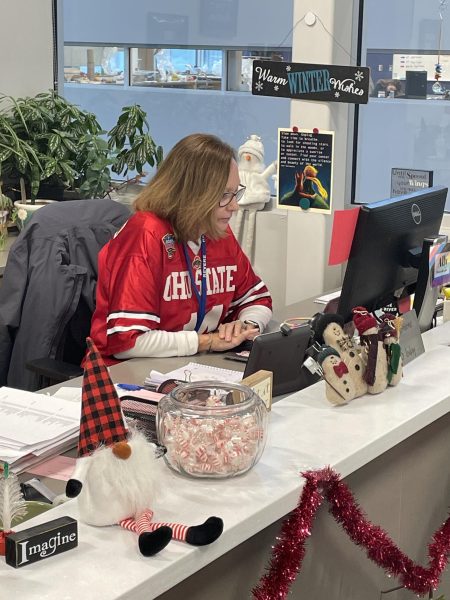
“When I come back from summer, I have to add any courses onto seniors’ course history that they took over the summer to make sure that their transcripts are updated. . . . And then I upload all those transcripts, once I feel they’re correct, into the students’ Naviance accounts so that the counselors have access to them,” Reinhold said.
From there, counselors must organize information and submit it to individual colleges. They send transcripts, a school report, a recommendation letter to about half the schools and for the Common Application they fill out a student profile section.
“Every single student’s transcript is sent along with the school profile. The school profile is giving the context of our school, so it’s talking about the location of our school, the size of our school, the number of staff members we have. It talks about average test scores . . . and then transcripts are evaluated in that context of what our school offers,” Long said.
There are small details between schools that lengthen the whole process for students and counselors alike. As deadlines approach, the counseling team makes sure to not overlook those small details.
“Occasionally, I will get asked to mail an official transcript out. We don’t do snail mail very much anymore, but there are still a couple colleges out there that won’t take an electronic copy of your transcript. So I do take care of that and a lot of times I will personally take it to the post office to make sure it gets there,” Reinhold said.
Meeting deadlines often means many hours spent writing for not only students but counselors as well. For example, letters of recommendation are difficult to complete during a busy workday filled with many disruptions, as they may require thoughtful consideration.
“It is hard to . . . carve out time for [college applications]. We . . . have pockets of time where we just try to work around [distractions] and sometimes it means some late nights trying to meet those deadlines,” Long said.
Most seniors are finished with application work by the second week of January, by which time most regular decision applications are due. As colleges start reviewing applications, they may wish to confirm parts of the application.
“The majority of our students’ transcripts are basically sent, their letters are basically sent. Now it’s the processing time, right? So now sometimes admissions advisers will reach out to us directly and ask us for more clarification. Now I’m getting questions about how did a student perform for the first quarter? Or how has anything changed?” Rion said.
Some colleges also have rolling admission. That means students can apply all the way into the summer, sometimes as late as July. Counselors check on their students to make sure everyone is ready for their post high school plans.
“When we come back in January . . . we start to pinpoint the students that didn’t send anything. So then we start to look at a list of those students and say, ‘okay, we noticed you didn’t send any college apps out. Are you looking to go to college?’,” DePompei said.
All this work can take its toll on students. The counselors help out not only with the intricacies of the college application process but also the emotional impacts it may have on students.
“When I am seeing students on a social emotional basis senior year, it is deadline driven,” Rion said.
Despite the deadlines, the details, the discussions and the repetition of much of the college application process, the counselors enjoy seeing their students learn more about who they are as they move forward academically. They understand that college applications are a time for growth and self understanding.
“It is one of my favorite things about my job. . . . You are putting your best foot forward. But you’re also using it as a time to reflect on your whole experience in high school and think about how all of the things that you’ve done here are going to help you launch into that next step of your life. It’s such an honor to be part of that process,” Long said.
The counseling office works each fall to make sure their students are prepared for life beyond high school. Year-after-year, counselors repeat the college application process. Just as students and counselors share the stress of the process, they also share the rewarding feeling of the final result.

